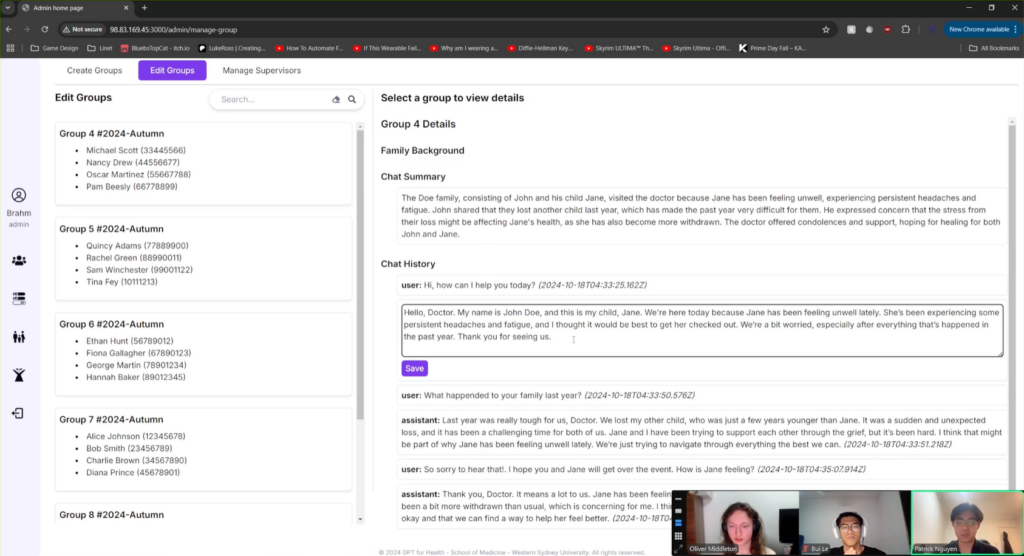Introduction
The “Health Across the Lifespan” workshop at Western Sydney University’s School of Medicine trains medical students on how to care for a family through interactions with virtual families. The workshop currently has some limitations that this project aims to solve by creating a system to algorithmically generate families with a high level of control and flexibility, and to provide an interface for students to interact with the generated families.
Technology
The system is built using Next.js, a full-stack framework based on React that supports both client-side and server-side rendering. For database implementation, SQLite is paired with Prisma ORM, which provides an efficient and flexible way to manage and query data. To handle real-time chat updates, Socket.IO is used in conjunction with Next.js server actions. The project uses AWS infrastructure to host and manage system server.
Result
The system can quickly generate many families to fit the number of student groups in each cohort, while also ensuring a wide variety of diversity across the generated families. With most of the generation process automated by the system, significantly less resources are required to run each workshop while also improving the experience of each student.
Conclusion
This project massively increased the efficiency and quality of workshops, as they are now easier to organise, and have more detail. GenAI interacting with the families gives students instant feedback to their actions and allows better emulation of actual back-and-forth between a patient and doctor.
